How to Code a Game (original) (raw)
If you’ve ever wanted to create a game but are just starting out, there’s no shame in admitting you might not know how to code a game.
You might know that some form of coding is required (beyond the actual video game design that is). Coding is, after all, what essentially makes the magic of games happen behind the scenes. So, becoming a game developer, whether as a professional or as a hobbyist, does require you to learn how to code.
Throughout this article, we’ll be looking at some core questions of how to learn to code for games, including what programming languages are best for games as well as what game engines are best.
So if you’re ready to learn how to make games, let’s get started!
Table of contents
What is Code and Coding?
To begin to even learn how to code a game, we need to understand the concept of code. Basically, code is a large list of instructions that we give to the computer to execute. There are a few steps along the way for this to happen. First, we have the programmer which is a person who writes code. They write the code inside of an integrated development environment (IDE), which is basically a specialized text editor.
Once the code has been written, we can’t just give it to the computer to run since it has no idea of what it’s looking at. Computers at their core calculate and store information physically with 1’s and 0’s (or on and off values).
So although a set of code may be legible for us as humans, a computer is none the wiser. In order for the computer to understand our code, we need to compile it. Compiling basically means converting the written text, to 1’s and 0’s (machine code). Once at that basic level, the computer can understand and execute the code.
Below is a sample of pseudocode – coding game logic that doesn’t necessarily refer to any specific language. This sample executes when a hypothetical player takes damage from an enemy.
subtract damage from health
if health less than or equals to 0 game over
The first thing to know (whether you’re learning this stuff for how to code a game or something else), is that code is read from the top down. A computer reads code one line at a time. First, we subtract the damage from the player’s health. Then we check to see if the player’s health is less than or equals to 0, and if so – game over.
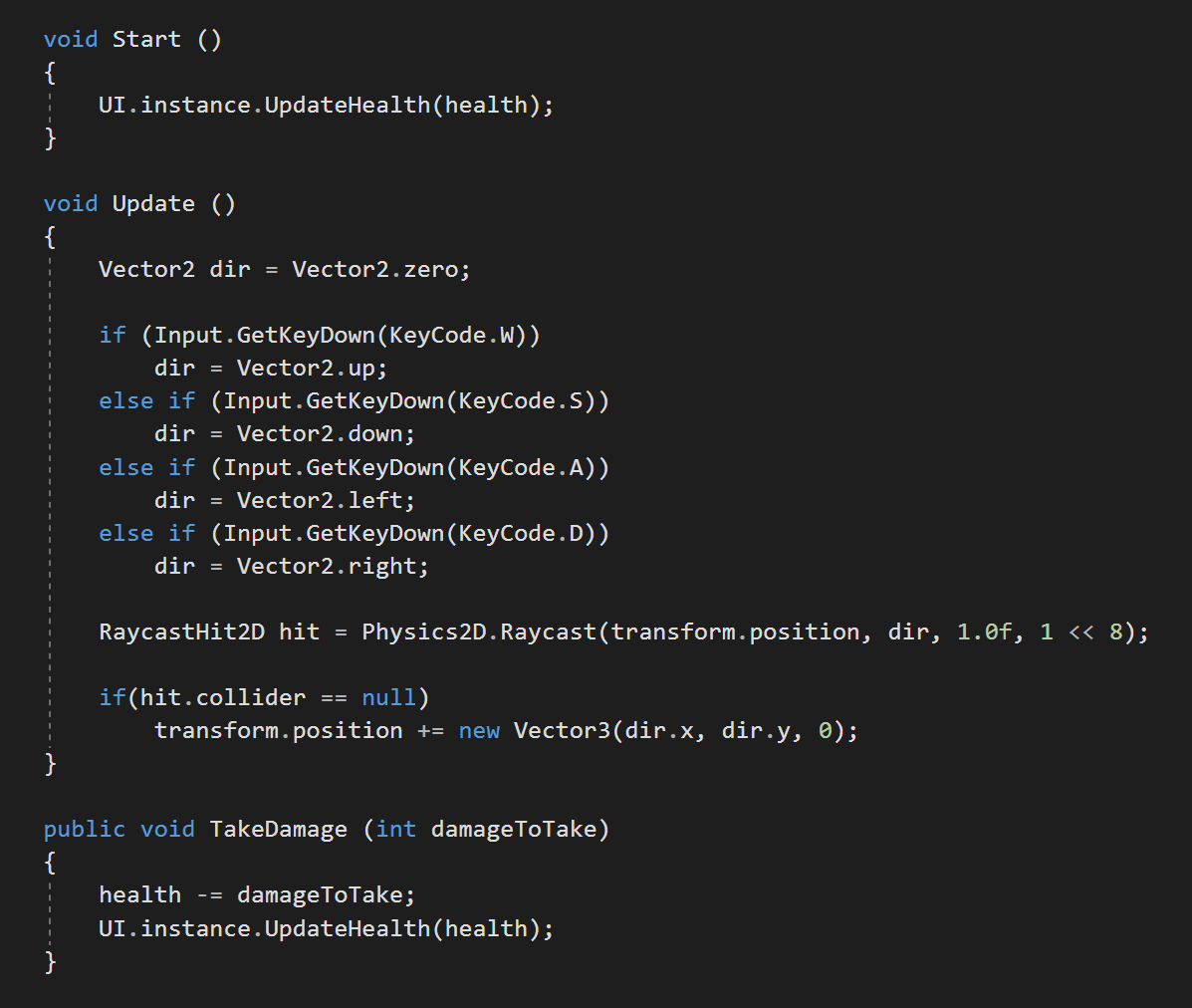
What about Programming and Video Game Scripting?
Let’s take a quick detour, as some out there might be wondering how programming for games and video game scripting relate to how to code a game. In other words, why are we learning how to codea game, but not how to program a game?
Well, to put a long story short, programming for video games is the exact same thing as coding a game. While there are some technical differences between programming, coding, and scripting, 90% of the time they don’t actually matter. Most people will use them interchangeably since programming in games works the same whether you refer to it as coding for games or programming for games (or video game scripting).
As we delve into coding a game, it’s worth noting that Zenva’s Game Development Mini-Degrees provide a comprehensive set of curriculums designed to turn beginners into industry-ready game developers. From developing RPGs in Godot to creating battle royales in Roblox, the Mini-Degrees cover an extensive range of topics relevant to game development. It’s an exceptional resource, offering hands-on projects, supplemental learning materials, and a Certificate of Completion, all beneficial for shaping a promising game development career.
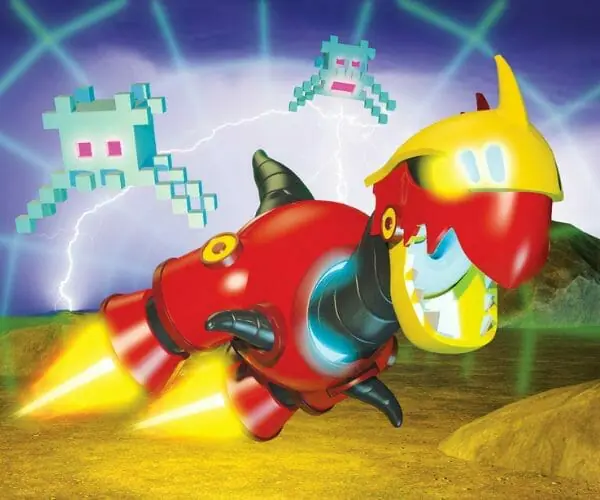
FREE COURSES AT ZENVA
LEARN GAME DEVELOPMENT, PYTHON AND MORE
AVAILABLE FOR A LIMITED TIME ONLY
Coding Languages
In the real world, we have many different types of languages and the same goes for coding. When starting out with how to code a game, you’ll need to choose a language. Something to note, is that once you learn one coding language, others are either already understandable or easy to learn. This is because pretty much all languages share the same core concepts, just with different syntax (coding grammar). Now let’s go over some of the most popular programming languages, which can then be used to create games.
- C++
- One of the most used languages in computing. C++ is a powerful language behind many programs, games and game engines.
- Pros: widely used in many game engines such as Unreal and many other AAA ones.
- Cons: generally harder to learn compared to other languages on this list.
- Learning Resource: C++ Tutorial Playlist
void myGame () { int number = 5;
cout << "How to Code a Game";}
- C#
- C# is a language generally used for scripting inside of a game engine.
- Pros: used in the Unity and Godot game engines.
- Cons: not as widely used outside of games compared to the other languages on this list.
- Learning Resource: Unity 101 – Game Development and C# Foundations
void myGame () { int number = 5;
Console.WriteLine("How to Code a Game");}
- Python
- Python is considered the easiest language to learn, since the syntax is simple and very readable.
- Pros: very readable, dynamically typed and has many learning resources.
- Cons: has disadvantages in speed, mobile and memory.
- Learning Resource: Python 101 – Introduction to Programming
def myGame:
number = 5
print("How to Code a Game")- JavaScript
- JavaScript is behind pretty much every website and is the go-to for web based games.
- Pros: most used programming language, many learning resources and easy to learn.
- Cons: not used in a lot of game engines.
- Learning Resource: JavaScript 101 – First Programming Steps
function myGame () { var number = 5;
console.log("How to Code a Game");}
You may not be able to understand the code examples, but you should be able to notice that they are all relatively similar in structure. C++ and C# look very similar and a programmer who already knows one of those languages can probably understand the other – with only a bit of learning required to begin coding with it.

Game Engines
When making a video game, there are two routes. First, you can create your own game engine from scratch. This gives you finer control over the end product but takes quite a lot of time and requires in-depth knowledge about the language you’re using. If you’re beginning your coding journey by having an interest in creating games, then I highly recommend using a game engine.
This is a piece of software or coding framework that gives you the tools to create games. It handles the rendering, physics, and overall management of a video game. You’ll often hear people asking: what is the best game engine? Well, there’s no such thing really as the best game engine. Each has its advantages and disadvantages, so let’s have a look at a few.
Note that when it comes to how to code a game, the engine can often dictate what language you’ll actually be learning. So you’ll need to pro/con that aspect as well since most engines are locked into a specific language to work.
- Unity
- One of the most popular game engines out there for beginners, Unity gives you to tools to create pretty much whatever type of game you want. 3D, 2D, VR, AR, multiplayer, etc.
- Coding Language: C#
- Pros: most popular game engine, large amount of learning resources, very versatile.
- Cons: compared to the other engines, Unity has disadvantaged graphics and 2D.
- Learning Resource: Unity 101 – Game Development and C# Foundations
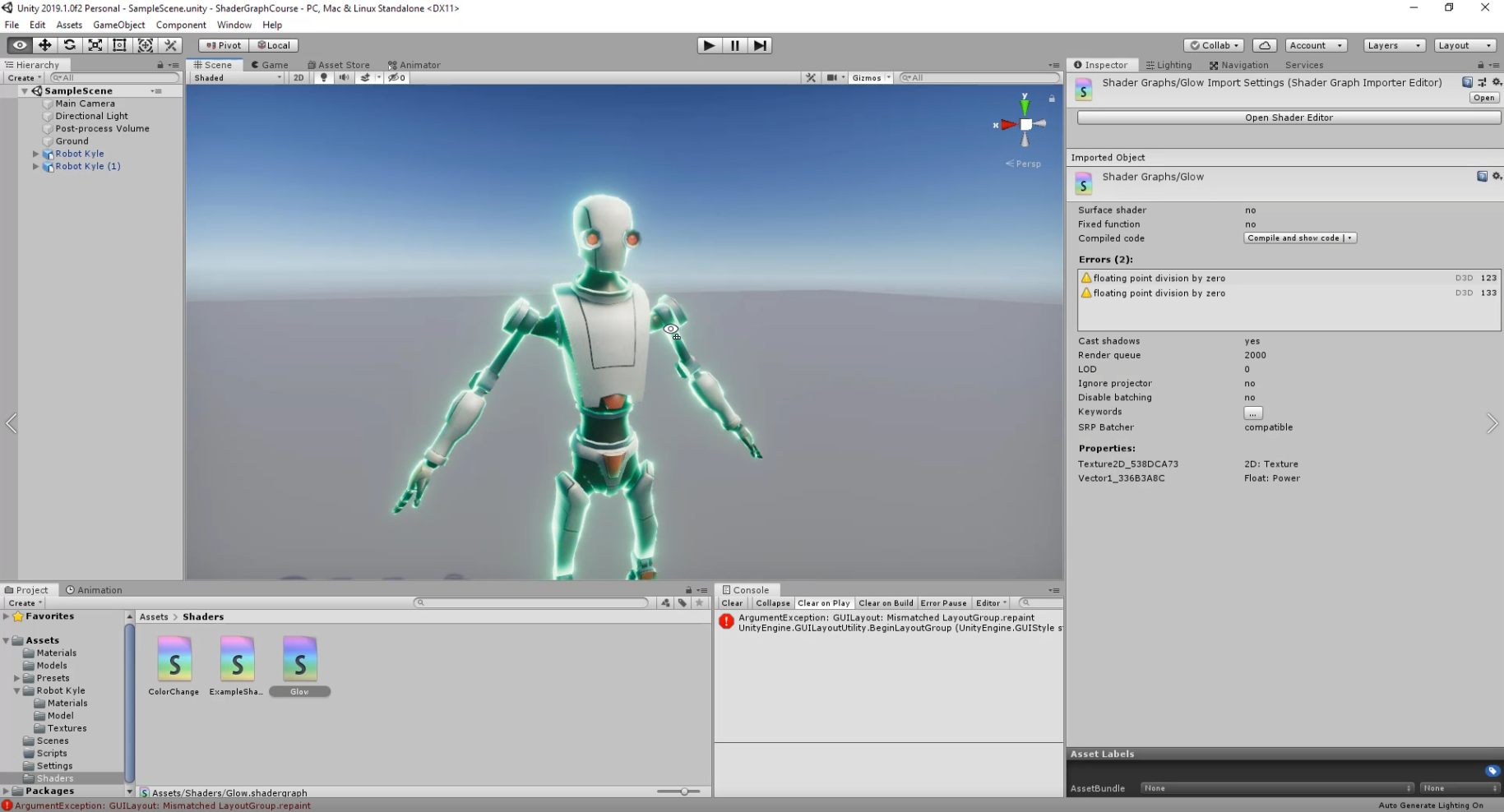
- Unreal Engine
- Unreal has a focus on graphics and is used by many AAA studios.
- Coding Language: C++
- Pros: graphically amazing, used by AAA studios.
- Cons: large game file sizes.
- Learning Resource: Unreal Engine 101 – 3D Game Creation
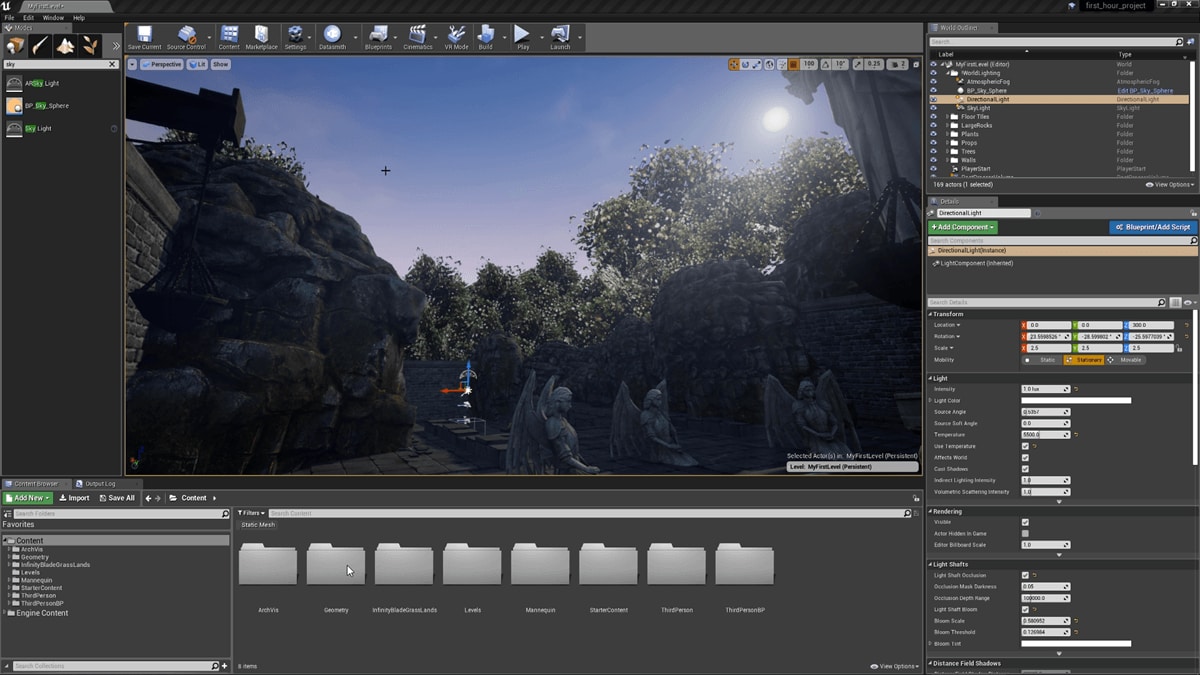
- Godot
- Godot is an open-source game engine with a heavy community focus. It’s similar to Unity in what you can create and is constantly growing.
- Coding Languages: GDScript (similar to Python), C#, C++
- Pros: open-source, lightweight, versatile, excels at 2D.
- Cons: less feature rich compared to other engines, not a large amount of learning resources.
- Learning Resource: Godot 101 – Game Engine Foundations
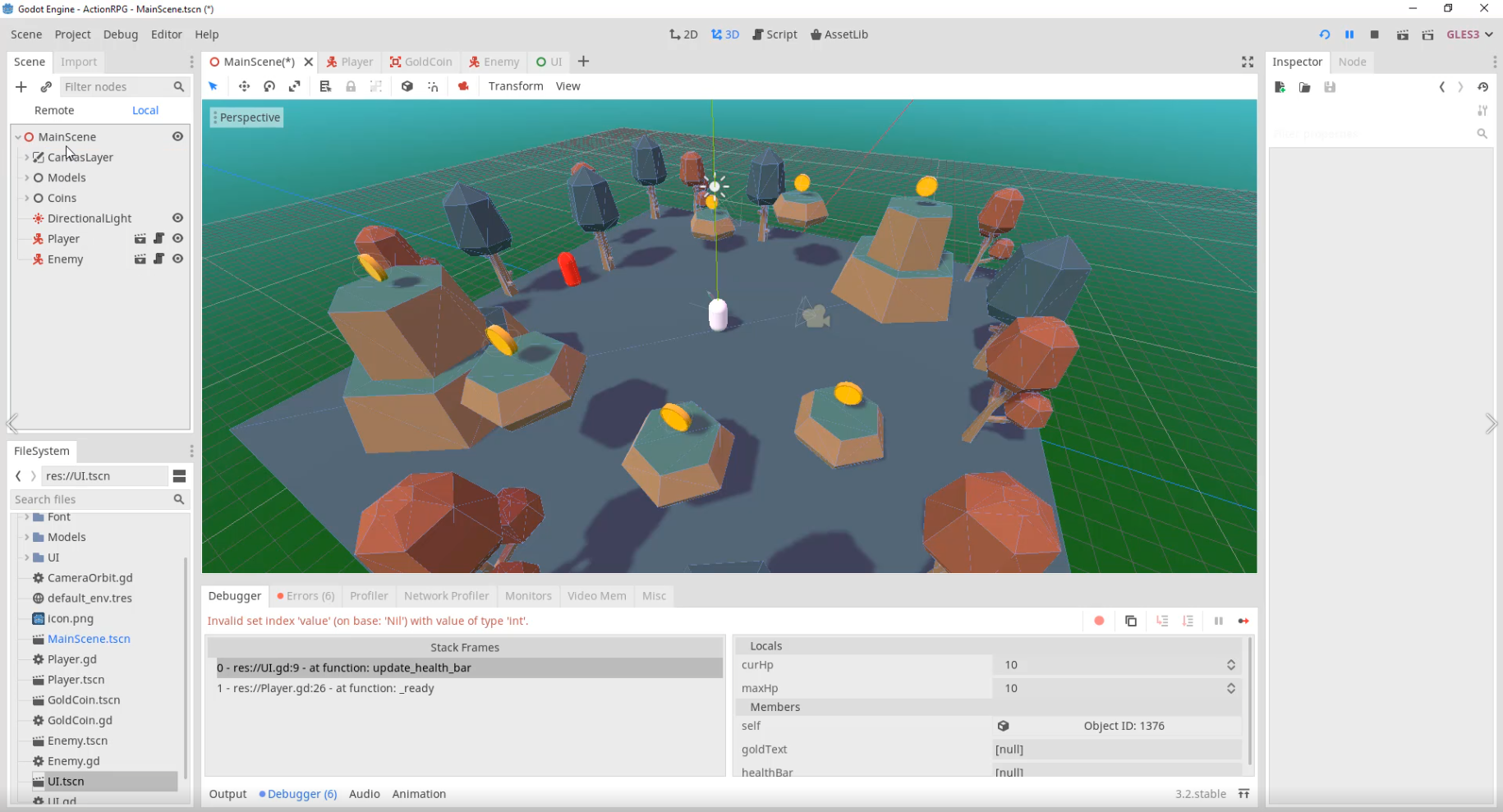
- Phaser
- Phaser is an open-source framework for Canvas and WebGL games.
- Coding Language: JavaScript
- Pros: lightweight JavaScript framework.
- Cons: limited to what platforms you can build to.
- Learning Resource: Phaser 101 – Introduction to Game Development
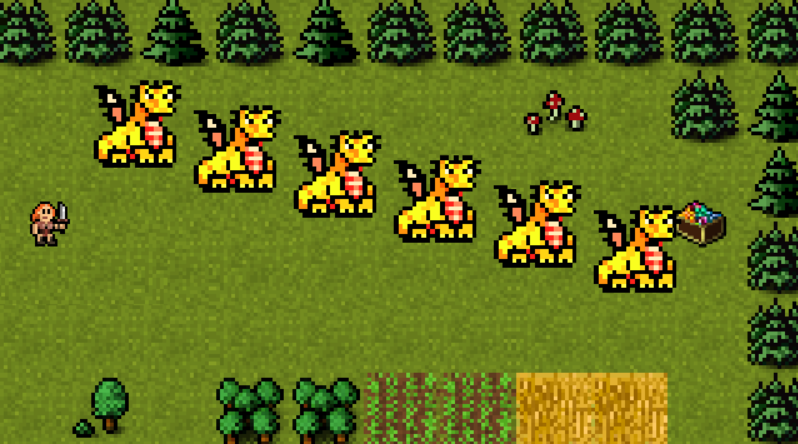
- GameMaker
- GameMaker has been around for quite some time and is great for creating 2D games.
- Coding Languages: GML, C++
- Pros: great 2D, large amount of learning resources.
- Cons: uses its own custom language.
- Learning Resource: GameMaker Documentation
- Pygame
- Pygame is a framework for games made with Python.
- Coding Language: Python
- Pros: lightweight Python framework.
- Cons: Python is not generally used for game development.
- Learning Resource: Python 101 – Introduction to Programming
So there’s a list of various game engines to start with as you learn how to code a game. I’d recommend you do some research on them, try them out and just see what you like. At the end of the day, what you’re most comfortable with is generally the best option.
But if you want a good all-rounder engine that’s beginner-friendly and has an active community, go with Unity.
How to Code a Game Learning Resources
Now it’s time for you to begin your journey in how to code a game by expanding your programming for video games all around. When learning to code/program, the best way to learn… is by coding. Watch videos, read books, and do your research to gain knowledge. Don’t forget to learn about other parts of games we haven’t even talked about, such as mobile games.
Yet in order to gain an understanding of code, you’ll need to jump in and give it a go. Start small with your games and programs. I’d recommend starting with a simple retro game like Pong or Breakout before moving into anything too complex. However, with a go-getter attitude, everyone can learn to code games and create the game of their dreams!
As you dive into coding your own games, Zenva’s Game Development Mini-Degrees are a highly relevant resource to consider. These curriculums cover game development topics from Godot, Unity, and Unreal Engine to game design and artwork, providing you a comprehensive learning experience from zero experience to becoming an industry-ready game developer. The practical, hands-on training combined with a Certificate of Completion makes these Mini-Degrees an invaluable asset in your journey towards mastering game development.
Below is a list of various resources, though, where you can begin your coding journey.
Zenva Courses
- Intro to Programming Bundle
- Unity Game Development Mini-Degree
- Unreal Game Development Mini-Degree
- Learn Python Programming by Making a Game
- The Complete Beginners JavaScript Course
Free Courses
- Unity 101 – Game Development and C# Foundations
- JavaScript 101 – First Programming Steps
- Phaser 101 – Introduction to Game Development
- Python 101 – Introduction to Programming
YouTube Playlists
- How to Program in C# – by Brackeys
- How to Program in C++ – by The Cherno
- How to Program in JavaScript – by Telusko
- How to Program in Python – by Microsoft Developer
- How to Program in GDScript (for Godot) – by Godot Tutorials
- How to Program in GML (for GameMaker) – by Let’s Learn This Together
Additional Articles
- How to Code a VR Game
- How to Code an AR Application
- A Parent’s Guide to Teaching Coding for Kids
- Coding for Kids: Languages and Project Ideas
Did you come across any errors in this tutorial? Please let us know by completing this form and we’ll look into it!
